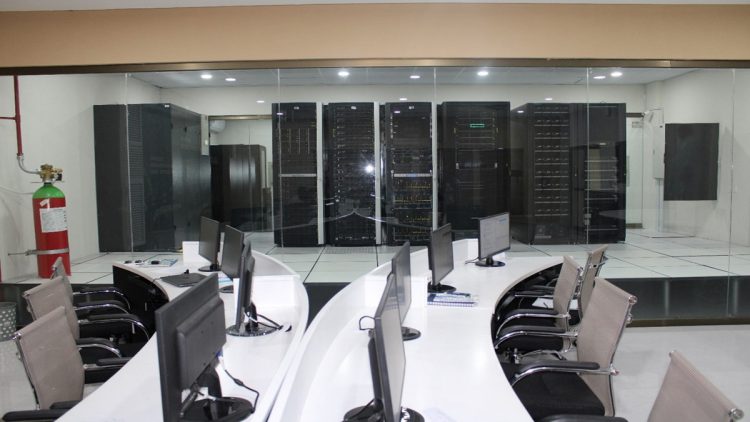Modern day scientific progress, research and discovery is dependent on computational capability. In many fields, large-scale physical experimentation has been replaced by computational modelling and simulation. The computational approaches reduce cost through eliminating the needs for designing several physical prototypes iteratively. Moreover, the development time can be reduced through improving design maturity by building detailed models and extensive simulations. The transition from physical experimentation to computational modelling is a remarkable shift, resulting in unprecedented acceleration in scientific progress. However, in order to solve large-scale complex problems, huge computational power is required which cannot be obtained from one computer. This limitation led to the development of Supercomputers by integrating hundreds and thousands of machines through a high-speed network.
Keeping in view the need of Supercomputing for scientific research, National University of Sciences and Technology (NUST) Pakistan has established Supercomputing Lab that houses the fastest Supercomputer in Pakistani academia. With a peak performance of about 1 Peta-FLOPS, the facility can handle large scale workloads. The facility has approximately 1200 CPU Cores, 80,704 GPU Cores, 1968 GB RAM and 60 TB Storage.
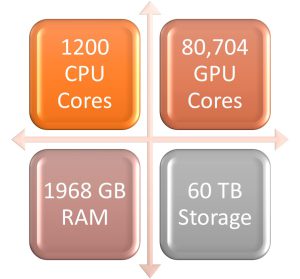
The Supercomputer is remotely accessible via Internet where users can submit computationally intensive jobs from anywhere in the world.
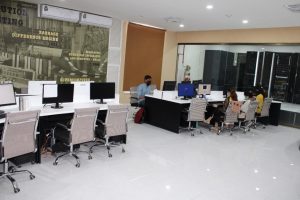
There are more than 1500 users of the facility, and more than 100 software are installed. The centre is providing consultancy services regarding application installation and maintenance, software development for heterogeneous architectures and HPC solution design ranging from Data Centre Designing to Cluster Deployment and Open Stack Cloud Configuration. Corporate trainings are also conducted.
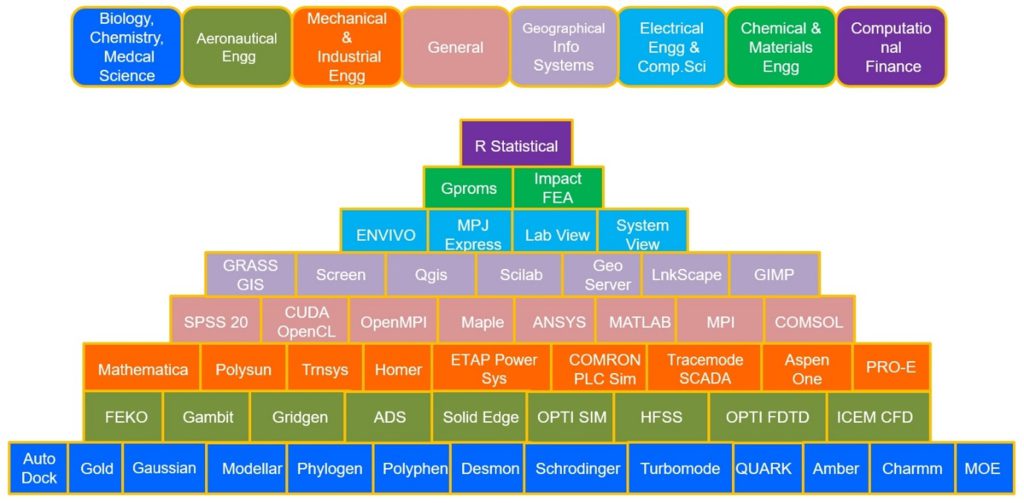
Projects:
Supercomputing lab has undertaken several funded projects that utilize its potential in various problem domains of National importance. Some of the salient projects and initiatives are highlighted here.
1. Monitoring landcover changes of major cities of Pakistan
Pakistan is amongst the most vulnerable countries effected by climate change. Due to rapid urbanization, land-cover of major cities is continuously changing due to the construction projects. This phenomenon poses a serious threat to national forests. Keeping in view this challenge, NUST has developed an application for monitoring and tracking of landcover changes for all major cities of Pakistan. Figure 5 shows a screenshot of indigenously developed application that uses Supercomputing as a platform and satellite imagery of last 20 years to identify carbon emission hotspots.
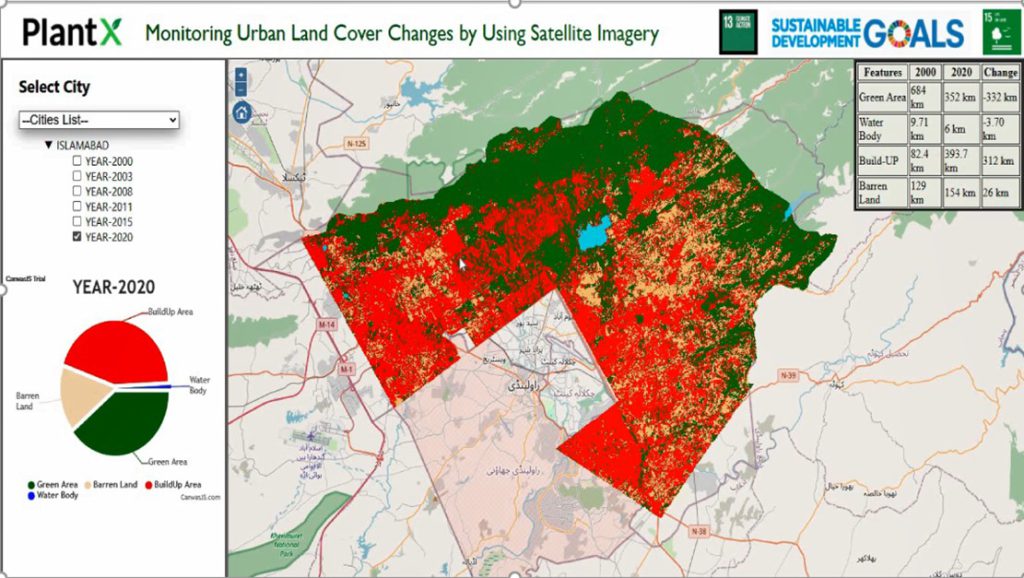
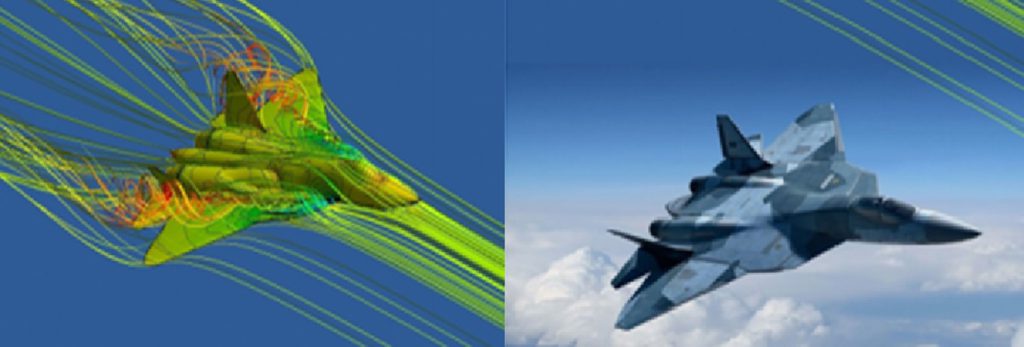
2. Development of advanced Computational Fluid Dynamics (CFD) Applications
Mechanics Interdisciplinary Group (MIG) has employed Supercomputing to complete several projects in the domain of Computational Fluid Dynamics (CFD). This includes drag reduction for Pakistani trucks, optimization of blades for ceiling fans and flight mechanics simulation of aircrafts.
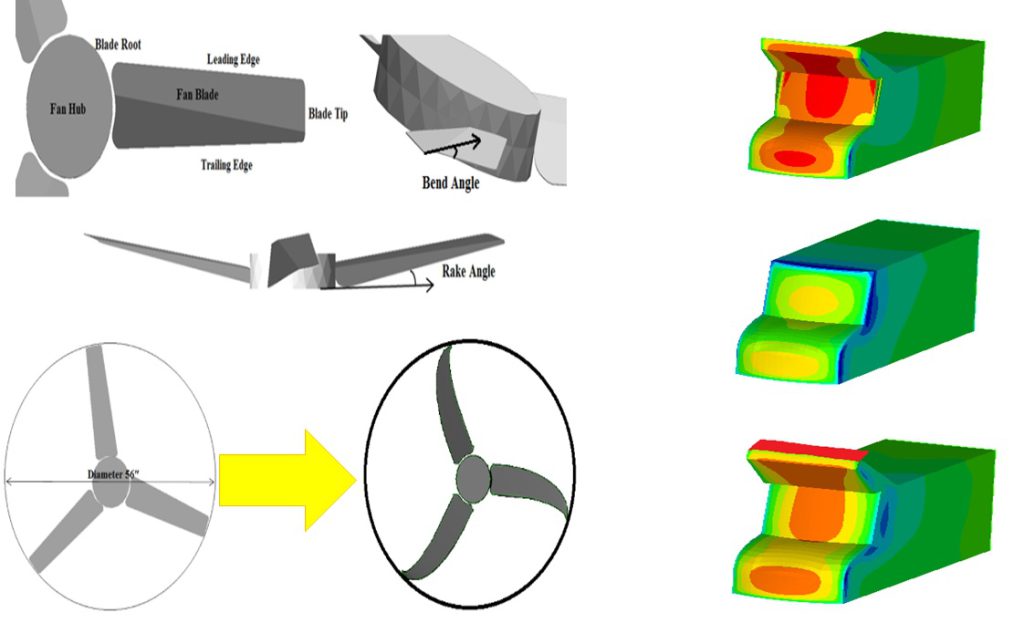
3. Modelling and Simulation of Large-Scale Biological Networks
The work used Supercomputing lab for acceleration of simulations related to identification of therapeutic targets. In this work a parallel version of the existing qualitative modelling framework was developed which resulted in almost linear speed up [1].
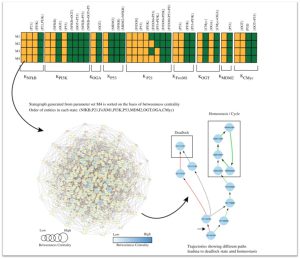
4. Development of InfiniBand module for MPJ-Express Library
“MPJ Express [2] is an open-source Java message passing library that allows application developers to write and execute parallel applications for multicore processors and compute clusters/clouds. The software is distributed under the MIT (a variant of the LGPL) license”. The InfiniBand implementation of the MPJ-Express library have been developed by using NUST Supercomputing infrastructure [3].
5. Simulation of Molybdenum Cofactor Biosynthesis
Molybdenum cofactor is an essential organometallic part of Molybdenum (except nitrogenase) containing enzymes present in all organisms. Simulations on computational tools including molecular docking, molecular dynamics and density functional theory studies were performed on supercomputer to understand the biosynthesis of MoCo and also to identify the deadlocks involved causing the molybdenum cofactor deficiency disease in humans.
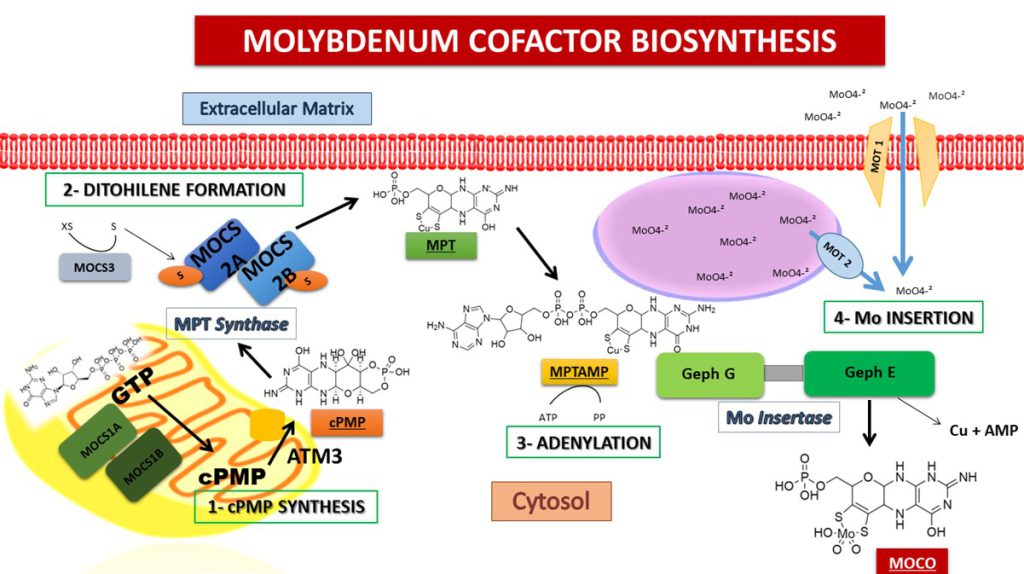
Human Resource Development in High Performance Computing: Supercomputing lab has also conducted several training seminars and Hands-on workshops in High-Performance Computing and parallel programming. In the year 2018, a 02-day hands-on training was conducted for a team of 08 engineers from industry working on processing of high-resolution satellite images. Moreover, a number of training activities have been conducted in collaboration with major international organizations like NVidia and Hewlett-Packard (hp). Some of these activities are listed as follows:
- International Symposium on Massively Parallel Architectures and Applications, 2012, (in collaboration with NVidia and Hewlett-Packard (hp), Pakistan)
- Seminar on Personal Supercomputers (Sponsored by Hewlett-Packard, Pakistan), (2012)
- First Hands-on Workshop on “How to use and program Supercomputers”, (2012)
- Second Hands-on Workshop on “How to use and program Supercomputers”, (2013)
- International Summer School on High Performance Computing in Aeronautics (2018), in collaboration with Belt and Road Aerospace Alliance (BRAIA)
References
[1] Saeed, Muhammad Tariq, et al. “Parameter estimation of qualitative biological regulatory networks on high performance computing hardware.” BMC systems biology 12.1 (2018): 1-15. DOI: 10.1186/s12918-018-0670-y.
[2] Shafi, Aamir, et al. “Multicore-enabling the MPJ Express messaging library.” Proceedings of the 8th International Conference on the Principles and Practice of Programming in Java. 2010.
[3] Expósito, Roberto R., et al. “Design of scalable Java message-passing communications over InfiniBand.” The Journal of Supercomputing 61.1 (2012): 141-165.
The author is Associate Professor and the Director of Supercomputing Lab at School of Interdisciplinary Engineering and Sciences (SINES), National University of Sciences and Technology (NUST). He can be reached at tariq@sines.nust.edu.pk.

Researcher Profile: https://bit.ly/3FwwCwL
![]()

